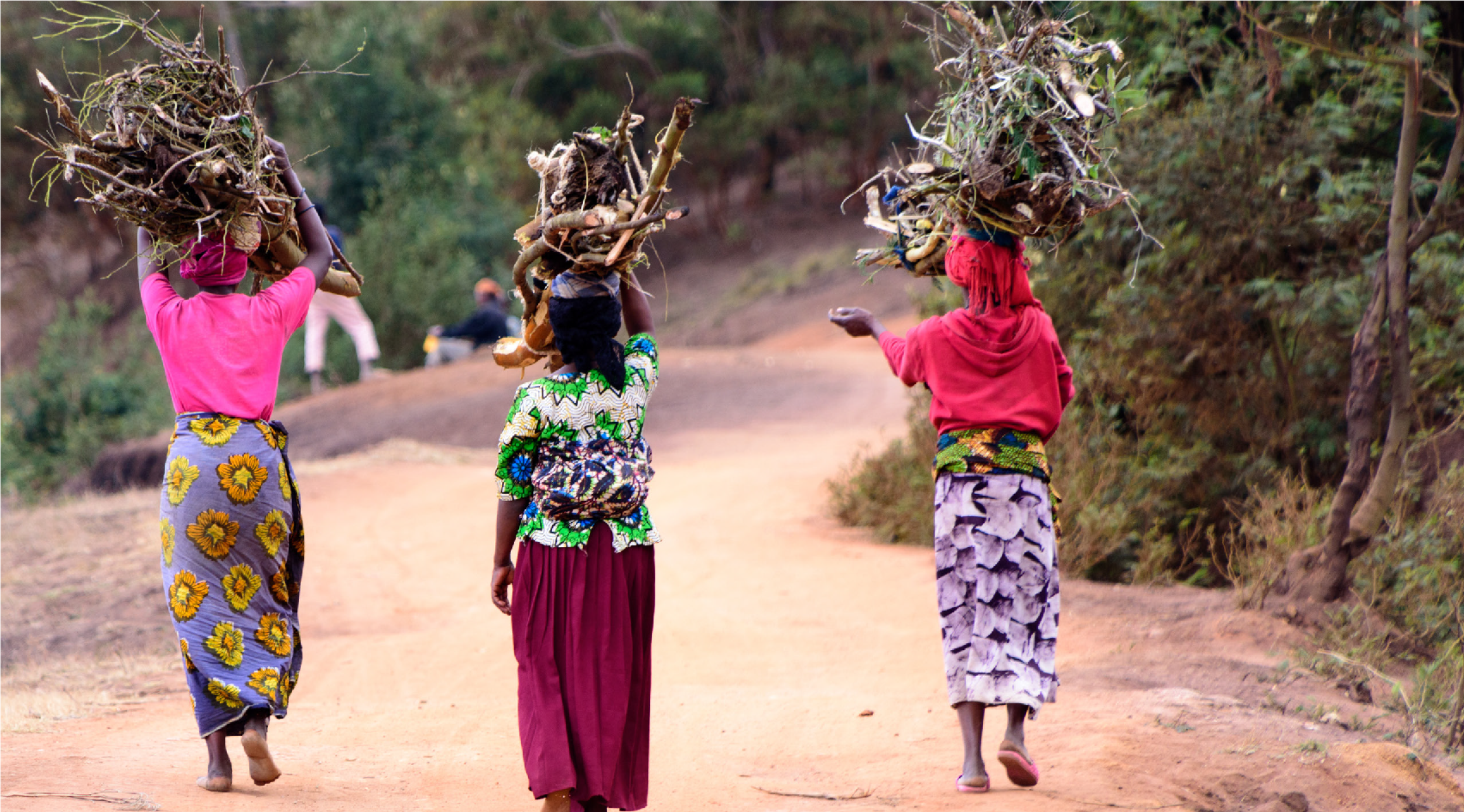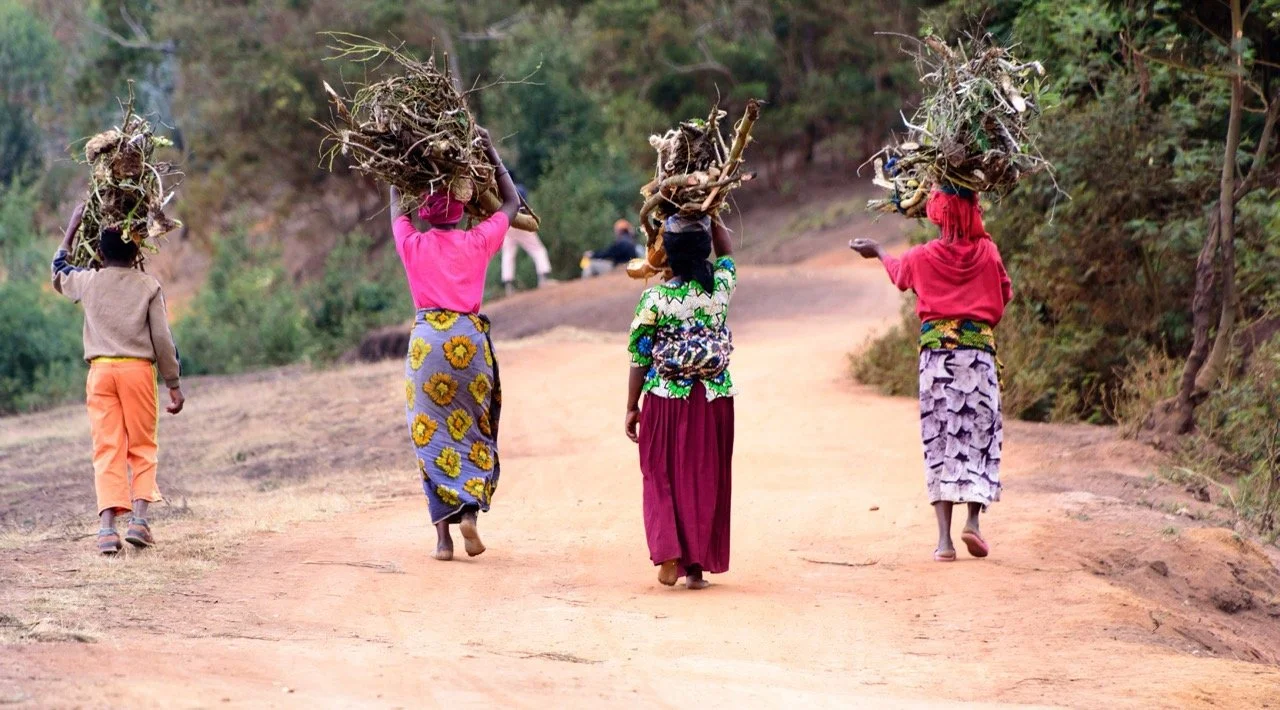
Introduction
Over 262,000 hectares of woodland are lost each year in Zimbabwe [1]. The major driver of this deforestation is the demand for firewood for heating and cooking in rural communities due to the lack of electrification.
Fuelwood provides about 61% of the country’s total energy supply [2] and the average household in Zimbabwe uses ~5.5 tons of firewood every year [3] - almost entirely gathered from the once extensive Miombo woodland systems that used to cover much of Zimbabwe.
Sources:
[1] 2023, Ministry of Environment, Climate and Wildlife, Zimbabwe National Forestry Policy.
[2] Zimbabwe 2022 Population and Housing Census Report, and European Commission & UNEP Interactive Country Fiches
[3] Cicada Kitchen Performance Tests, which estimate 15kg of firewood used per household per day in the baseline scenario

CICADA CARBON COOKSTOVE PROJECT
Project Overview
Reducing the demand for firewood requires the provision of alternative technologies to increase energy efficiency in cooking. This single focus alone can dramatically reduce the annual deforestation rate in Zimbabwe.
Cicada Carbon’s Clean Cooking Project reduces reliance on indigenous firewood across Zimbabwe through the introduction of more efficient cooking technology, specifically BURN’s Ecoa & Kuniokoa clean cookstoves. The initial phase of this project aims to distribute a total of 160,000 cookstoves by December 2025. These stoves will significantly reduce household expenses, decrease the time spent on gathering firewood and cooking, promote gender equality, and improve respiratory health.
As of May 2025, 120,000 cookstoves have been distributed throughout 9 provinces in Zimbabwe. Based on Kitchen Performance Tests (KPTs), these cookstoves have significantly reduced firewood consumption during their usage, potentially avoiding an estimated 14,000 hectares of deforestation of indigenous woodland to date.

The Cicada Climate Fund is an innovative investible structure that uses Carbon Market demand for high quality carbon credits to deliver leveraged impact return.

THE PROBLEM
Deforestation and degradation of woodland is a multi-pronged systemic issue
Firewood consumption for heating & cooking in rural households
+
Expansion by under-resourced small-scale farmers
But with a well-packaged, holistic solution it can be addressed.
This is the focus of the
Cicada Climate Fund.

The single biggest driver of annual deforestation is rural households collecting firewood driven by the basic human need to put food on the table for one’s family.

Our goal is to leave both the environment and the people who depend on it, better off.
Our pipeline includes the following projects:
TECHNOLOGY-BASED
Clean Cooking Credits
Distributing 160,000 fuel-efficient rocket stoves to rural communities in Zimbabwe (100,000 distributed to date). This project has a striking impact on rural livelihoods, health and ecosystems. Each stove will save ~1 Ha of woodland over its useful life.
NATURE-BASED
Nyangani Watershed Soil Carbon
An ambitious VM42 project working with multiple stakeholders across the landscape. The project will focus on catchment restoration, conservation agriculture, and preservation of the rare Afromontane forests of the eastern highlands.
SEQUESTRATION
Direct Seeding A/R
Replanting 100m appropriate indigenous trees over the next 30 years in the degraded miombo systems of central Zimbabwe, using a combination of direct seeding and nursery planting.
This ambitious goal will require significant funding.

Management
Karen Jiri
Commercial Director
15+ years experience, of which 8 years were previously with Takura Capital Group in various senior leadership roles
Extensive experience in the Agriculture sector and related downstream agro-processing, FMCG manufacturing and retail sectors
Holds a Masters in Business Leadership (MBL) from the UNISA School of Business Leadership
Has a BCompt (Hons) degree in Accounting Science through UNISA and completed articles of clerkship with Deloitte Zimbabwe
Guy Hammond
Operations Manager
30+ years experience in agriculture, the last 3 with Cicada.
The last 15 years focused on small scale agriculture and community development.
Currently scaling-up and managing Cicada’s small-scale Conservation Farming program.
Worked for First Quantum Minerals in Zambia and DRC for 12 years in their ESG/CSR department as head of the Kansanshi Foundation.
Established and ran a large Small scale farming program, as well as multi faceted CSR initiatives in community development, in NW Province, Zambia.
Diploma in Agricultural Management (Blackfordby College of Agriculture, Zimbabwe)

Locate Us
Cicada Carbon
308 Herbert Chitepo Avenue
Harare
Zimbabwe








